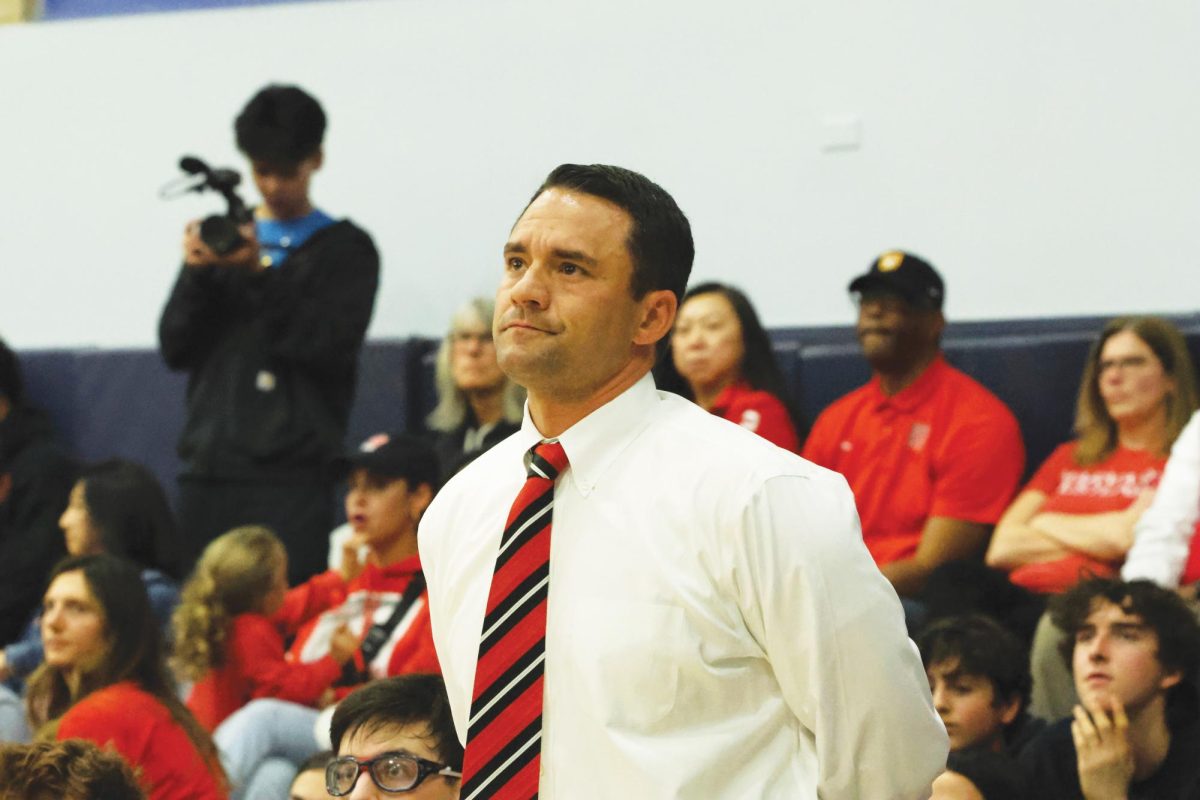By Will Baskin-Gerwitz
The light reflecting off the buildings on Ventura Boulevard could not be seen because of the backs pushed up against the windows, crammed shoulder-to-shoulder, wall-to-wall. Feldman Horn 201 was standing-room only, just a minute past the end of second period, and the bag of bagels did not last more than five minutes into break. The room was so noisy that by the time the leaders of the Young Leftists club tried to start the debate on the Iraq war Jan. 29, it took a good two minutes to lower the volume enough for conversation to begin.
Thereâs only one problem with this image: itâs not real.
There were no hordes of students and teachers flocking to the top of the school to partake in the debate, the boxes of food went mainly untouched and the six people that were in the room at its highest occupancy were not able to fill more than two-thirds of the chairs in the room.
The example of the empty Iraq debate is only one example of a wider current in Harvard-Westlake: many members of the community feel that the student body is losing its feel on the pulse of current events. Despite current events quizzes designed to get students to look at the news daily, many students cram for the quizzes, only getting a knowledge of the events strong enough to score well on quizzes.
Although the 197 sophomores polled said they averaged an A- on a current events quiz covering broad themes from the past year, those same students said they only look at the news for an average of 3.4 days weekly. Many said that they only look at the headlines to score well on the class quizzes.
History teacher Greg Gonzalezâs experience with quizzes, however, is much different from the poll results. He estimates that on his quizzes, which he gives about twice a month, the average score is around a 70. Other teachers have had similar results with their quizzes, seeing an average grade of a C to C-.
âI think you have to make a conscious effort to be aware [of the news],â Tasia Smith â08, an A.P. U.S. History student who is involved in active groups such as Teens against Genocide said.
âI think besides reading for news quizzes, [students need to] actually get interested, read some stories and find one that catches their eye and try to learn more about the world instead of thinking, âOh, thatâs boringâ.â
The history department is also split on whether to try new methods to increase knowledge of current affairs or if the basic quiz is enough. Others would like to see a shift toward more discussion-based activities, such as the round-table discussions with students and teachers that marked the fifth anniversary of the 9/11 attacks. Teachers are already implementing new methods to try to avoid the quiz. Gonzalez often sends his students to magazines in the library to write on specific articles. History teacher Dror Yaron would like next year not to have to give a current topics quiz during the first semester, but rather have his students write their own sample quizzes, testing him and themselves in the process.
The level of the questions that the students write reflects how in-depth their knowledge of the past weekâs news is.
Despite controversy over how knowledgeable students are about current events, Gonzalez feels that what the history department has done is progress over his high school days.
âI definitely read the paper every day [when I was in high school],â he said. âBut it was usually the sports section.â





































